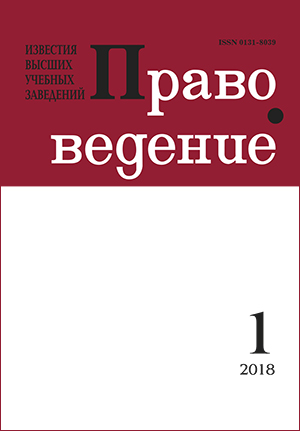The Maxim “Law does not arise from the violation of law” and the modification of peremptory norms
DOI:
https://doi.org/10.21638/11701/spbu25.2018.101Abstract
Maxim “ex injuria jus non oritur” is not only a general legal, but also an international legal principle, which states that law doesn’t arise from the violation of law. However, peremptory norms of international law (jus cogens) are not something frozen. They develop, like international law in general, so the latter expressly provides for the possibility of their modification by subsequent norms of the same nature. This inevitably means that, in the period of changing such norms, the behavior of some states will contradict the previous peremptory norm until the emergence of a new peremptory norm is recognized by the international community of states. Does the change of imperative norms result in an exception to the abovementioned maxim? And how do you know whether the actions of the state or group of states have created a new peremptory norm of international law, or they are merely a violation of the already existing peremptory norm? Can moral considerations justify the state’s withdrawal from the maxim of “ex injuria jus non oritur” in the name of creating a new peremptory norm of international law? Or is such a deviation justified by the conformity of the state’s actions to any other norms? Having examined these issues, the author comes to the conclusion that, unlike the positive law, natural law does not know exceptions to the maxim. The author proves that the ground for the emergence of new peremptory norms of international law creates changes in natural law.
Keywords:
peremptory norms of international law, the Vienna convention on the law of treaties 1969, the UN International Law Commission, responsibility of States for internationally wrongful acts, modification of peremptory norms
Downloads
References
Downloads
Published
How to Cite
Issue
Section
License
Articles of "Pravovedenie" are open access distributed under the terms of the License Agreement with Saint Petersburg State University, which permits to the authors unrestricted distribution and self-archiving free of charge.




